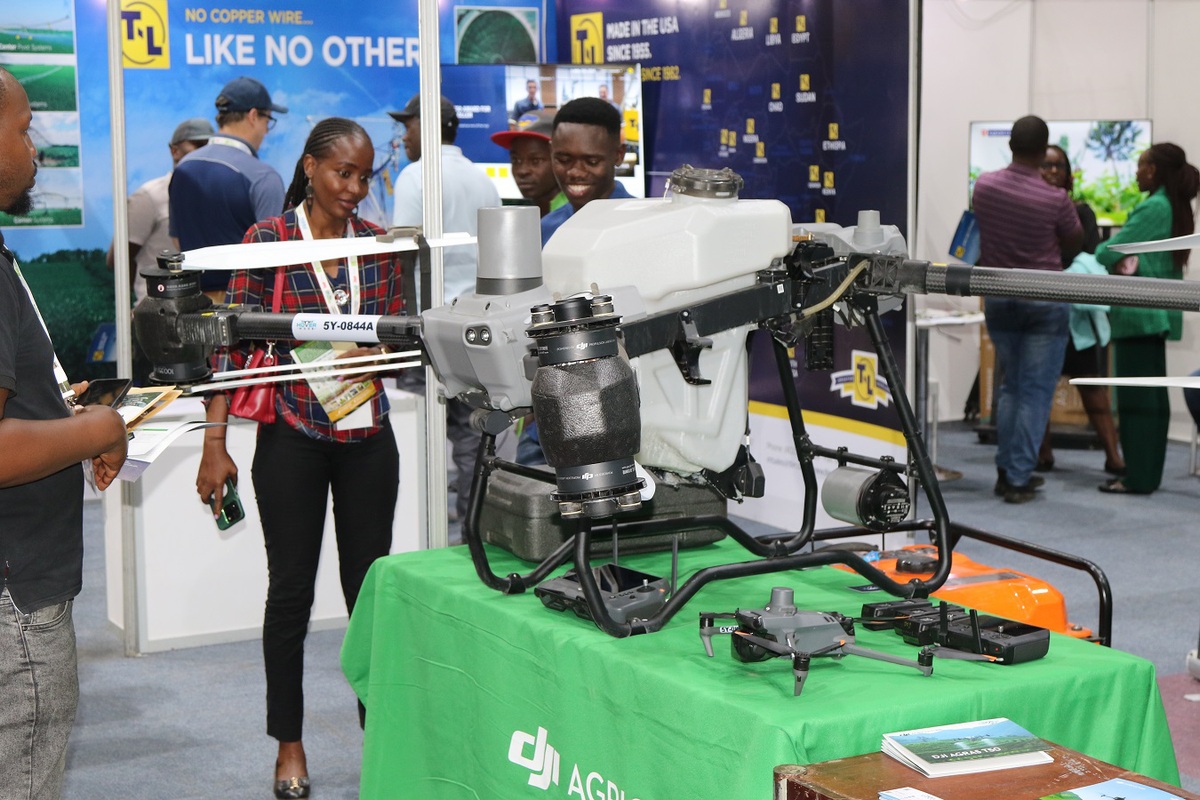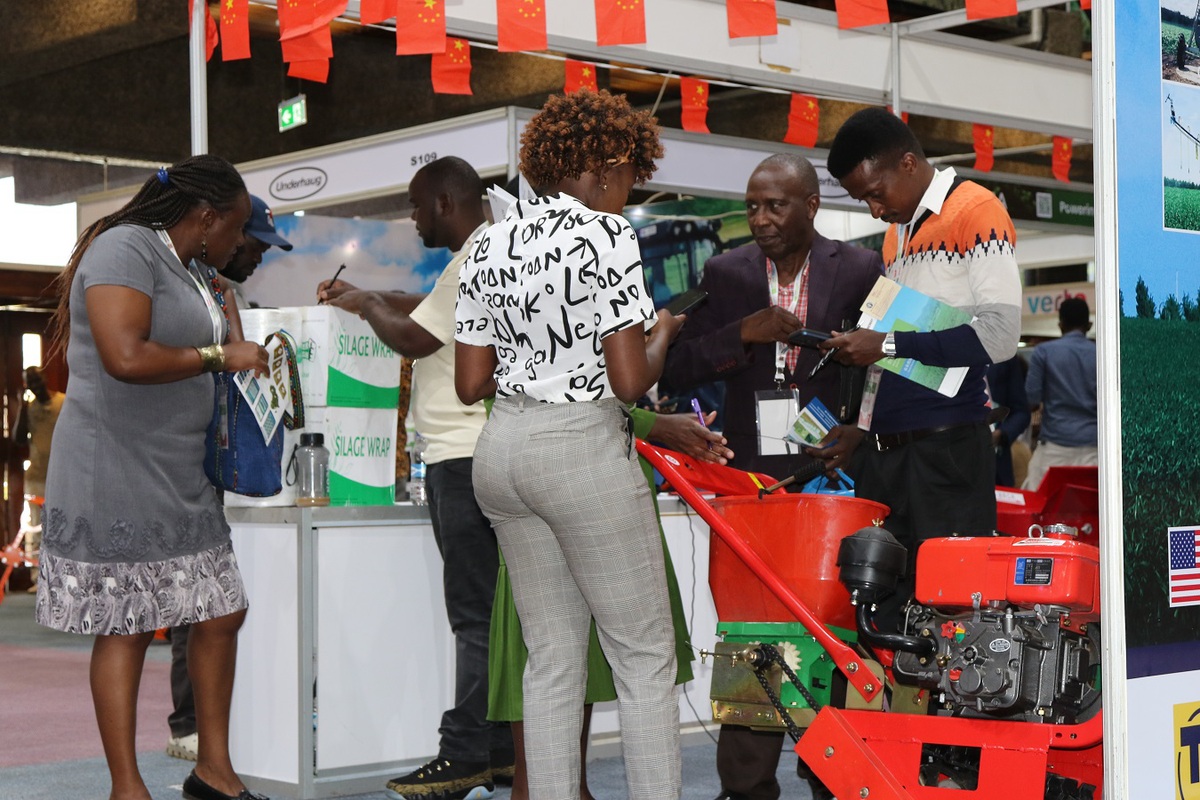
An agricultural drone on display at the 8th Africa Agri-Expo held in Kenya's capital Nairobi on Wednesday and Thursday to promote the adoption of technology in agriculture. [Photo by Otiato Opali/chinadaily.com.cn]
Despite agriculture accounting for almost 60 percent of total employment in Sub-Saharan Africa, agricultural productivity in Africa continues to lag behind other regions, according to the International Labour Organization. However, experts have argued that digital technologies and related products and services can transform production, management and governance of food systems on the continent to improve food security.
Speaking at the 8th Africa Agri-Expo held in Kenya's capital Nairobi on Wednesday and Thursday, exhibitors and agriculture experts acknowledged Africa's gap in adopting technology for innovative farming techniques, data-driven agriculture, best practices for sustainable agriculture, financing and investment.
While calling for an accelerated uptake of technology to improve food security, nutrition and promote sustainable agriculture, Juma Mukhwana, Kenya's principal secretary in the Ministry of Industry decried the minimal uptake of technology in the agricultural sector. Noting that small scale farming, which is the backbone of many African economies, plays a major role in generating employment, ensuring food security and driving innovation, Mukhwana said that this is where the synergy between technology adoption and agriculture should focus on. He added that the Kenyan government will continue to promote partnerships with farmers and investors while promoting the development and adoption of new technologies through creating policies that encourage research and innovation.
Eric Kimunguyi, the chief executive officer of the Agrochemicals Association of Kenya, suggested that the adoption of technology in Africa's agriculture sector can start with small-scale initiatives targeting farmers to largescale applications.

Visitors learning about different farm equipment at an exhibitor's booth during the 8th Africa Agri-Expo held in Kenya's capital Nairobi on Wednesday and Thursday. [Photo by Otiato Opali/chinadaily.com.cn]
"At the local level, we can encourage and enable farmers to adopt measures like precision technology through the use of treated seeds which are guarded against diseases, pests and weather thus optimizing germination. Farmers can also adopt the use of digital platforms to keep themselves informed on key issues like weather prediction and market dynamics," Kimunguyi said.
According to him, the vast majority of food in Africa is being produced by smallholder farmers and it is important to listen to them and learn about the challenges they face in light of technology adoption. He called on African governments to develop policies that promote a technology-driven, and evidence-based approach to agricultural solutions alongside enhanced training and support.
Wachira Kaguongo, an agricultural economist who is currently the chief executive officer at the National Potato Council of Kenya, emphasized that the need for technology and innovation in Africa has never been more urgent. This is because it can fast-track the transformation of Africa's agrifood systems into more efficient, inclusive, robust and sustainable models leading to increased production, improved nutrition and a better life for all.
He added that Africa is lagging behind in the adoption of simple technological solutions like the use of drought-resistant seeds, smart irrigation systems, data-driven decision-making tools, drones, satellite imagery and other technological advancements which can unlock new possibilities for farmers.
"Despite robust policies at national and regional levels in Africa, there remains a significant gap in the implementation of these policies, especially those related to adoption of technology in agriculture. The implementation of these policies by local governments and regional bodies can help our farmers access the necessary skills, tools and infrastructure to engage in profitable and sustainable agriculture," Kaguongo said.